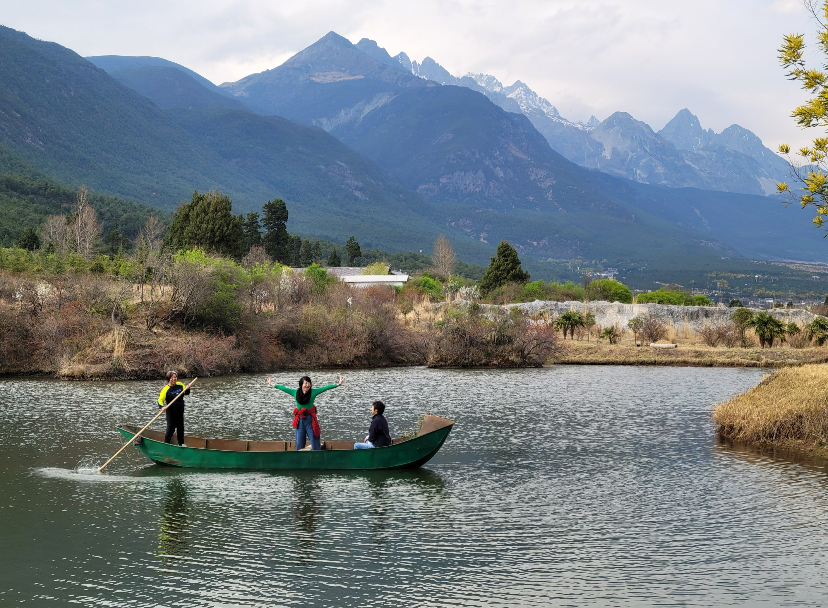Nature-Based Leadership Curriculum – Core Themes: Perceptual Awareness – Ecological Mind – Embodied Leadership – Source Connection
I. Introduction
Nature-Based Leadership (NBL) is an integrative leadership approach rooted in ecological principles, indigenous wisdom, and contemplative traditions (Taoism, Zen, Dzogchen). It emphasizes reconnection with nature as a source of insight, ethical grounding, and leadership renewal. This curriculum supports leaders in cultivating presence, awareness, and relational intelligence to respond wisely in complex times.
II. Foundational Perspectives
- Ecological Worldview
Understanding humans as part of—rather than separate from—natural systems. Leadership emerges from participation in life’s interdependent processes. - Perceptual Awareness
Developing direct, embodied awareness through nature-based practices. Includes silence, stillness, deep listening, and pattern recognition. - Inner and Outer Nature
Exploring the relationship between inner states and outer environments. Cultivating clarity, spaciousness, and resilience through connection with wild nature. - Systems Thinking and Complexity Thinking
Nature-Based Leadership draws on both systems thinking and complexity thinking, recognizing them as complementary but distinct:
Systems thinking helps leaders understand how different parts interrelate within a whole, focusing on structure, feedback loops, and leverage points.
Complexity thinking, influenced by complexity science, emphasizes emergence, unpredictability, and the dynamic interactions between agents in a system.
Systems thinking asks: “How does the system work, and how can we shift it?”
Complexity thinking asks: “What is emerging, and how can we engage with it wisely?”
NBL uses systems thinking to ”see the whole,” and complexity thinking to ”dance with emergence”—developing inner capacities to navigate uncertainty with grounded presence.
III. Core Practices
- Daily Perceptual Awareness Practice
A structured, 15–30 min practice to cultivate presence, deep observation, and connection. Includes:- Orientation (body, breath, place)
- Awareness of movement, sound, texture, and temperature
- Reflection on interconnection and impermanence
- Solo Time in Nature
Immersive solo periods (from 30 minutes to multiple days) in wild or semi-wild spaces. Aimed at deepening relational intelligence, humility, and source connection. - Dialogue with the Living World
Journaling, council circles, and contemplative walks that encourage dialogue with more-than-human life. Recognizing nature as teacher and co-leader. - Ritual and Ceremony
Use of gratitude practices (e.g., Haudenosaunee Thanksgiving Address), threshold rituals, and earth-based ceremonies to honor transitions and invite guidance.
IV. Methods and Tools
- The Twelve Principles
Serving as guideposts through the leadership journey, the Twelve Principles support both inner orientation and outer behavior aligned with nature-based wisdom. - In Dialogue with Your Self (U-Journaling)
This structured journaling practice fosters self-reflection and awareness-based systems transformation. Leaders engage in a reflective dialogue with their emerging self, exploring questions across time horizons—from past influences to future visions. It includes:- Sensing what is wanting to be born in oneself and in context
- Surfacing deep frustrations and sources of inspiration
- Seeing one’s life and leadership journey from various vantage points (e.g., helicopter view, younger self, future self)
- Clarifying legacy, purpose, and vision
- Crystallizing next steps and identifying partners
This method is particularly effective in preparation for a Nature Quest, as it helps crystallize intention, foster inner clarity, and reveal what must be let go and what is ready to come.
V. Applications in Leadership Contexts
- Organizational transformation through ecological principles
- Regenerative decision-making and ethical stewardship
- Embodied presence in complex negotiations
- Resilience practices for burnout and overwhelm
VI. Integration with Policy, Innovation, and Culture
NBL is adaptable to both corporate and governmental leadership development programs. Its emphasis on inner transformation supports long-term behavioral change and systemic sustainability.
VII. Resources and Further Study
Taoist texts (Tao Te Ching, Zhuangzi)
Zen and Dzogchen contemplative manuals
Indigenous leadership and ecological knowledge
Systems and complexity theory (Meadows, Capra, Snowden)
Nature Quest and Council Guide traditions
”In Dialogue with Your Self” journaling guide (based on Presencing Institute’s U-Journaling method)
This curriculum is co-developed in partnership with Nature Academy Learning Lab and Tong Tao Institute, integrating Western ecological leadership and Chinese philosophical heritage.


